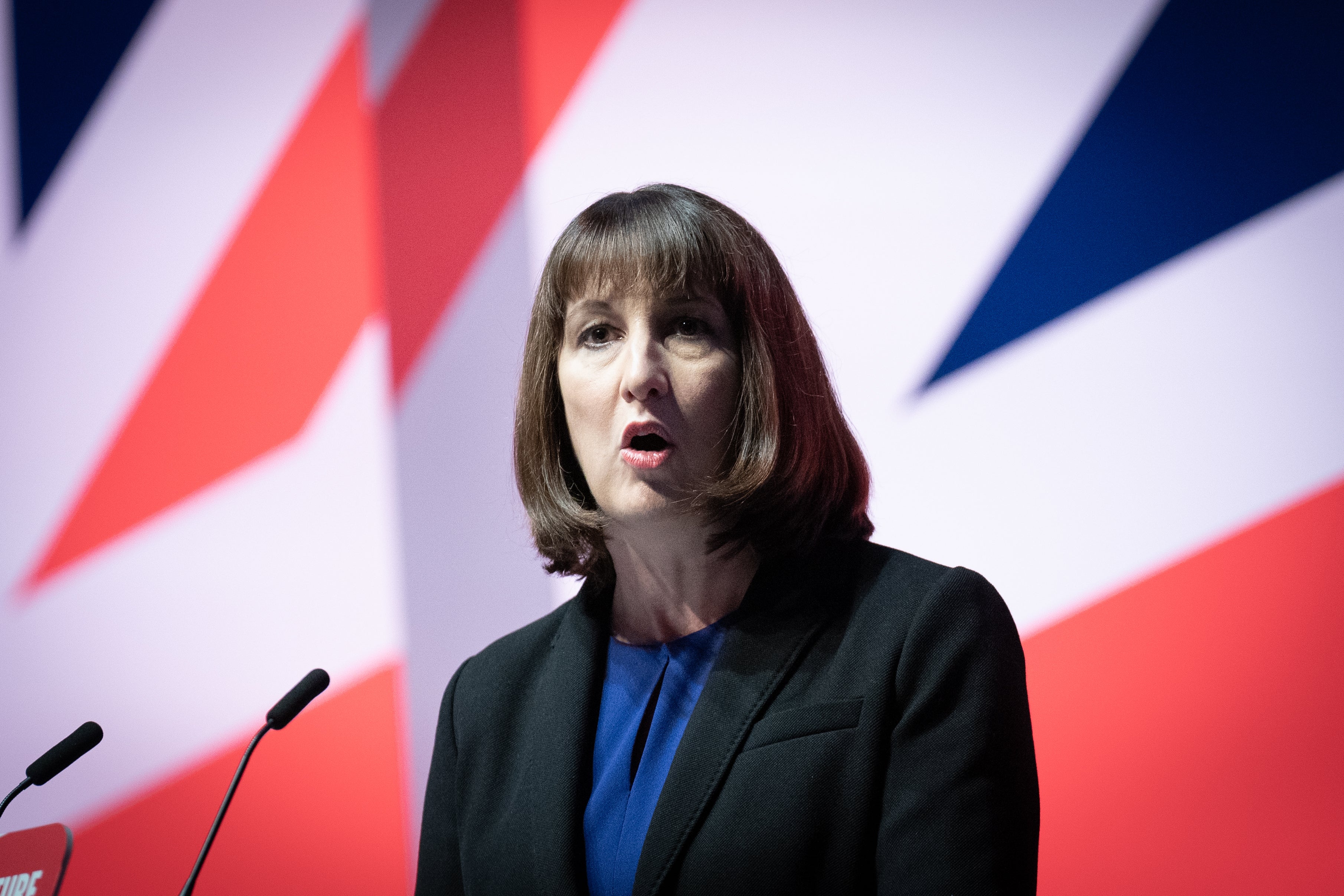Reeves sharpens economic dividing lines with vision of medium-sized state
The shadow chancellor again sought to reassure businesses that Labour would work with them in government.

Your support helps us to tell the story
From reproductive rights to climate change to Big Tech, The Independent is on the ground when the story is developing. Whether it's investigating the financials of Elon Musk's pro-Trump PAC or producing our latest documentary, 'The A Word', which shines a light on the American women fighting for reproductive rights, we know how important it is to parse out the facts from the messaging.
At such a critical moment in US history, we need reporters on the ground. Your donation allows us to keep sending journalists to speak to both sides of the story.
The Independent is trusted by Americans across the entire political spectrum. And unlike many other quality news outlets, we choose not to lock Americans out of our reporting and analysis with paywalls. We believe quality journalism should be available to everyone, paid for by those who can afford it.
Your support makes all the difference.Rachel Reeves used her speech to the Labour Party conference to sharpen the dividing lines for the next election set out by Kwasi Kwarteng on Friday.
On the Government’s side is the tax-cutting, state-shrinking, deregulating vision set out by the Chancellor, where the state gets out of the way of business.
The shadow chancellor’s alternative, set out on Monday, featured a larger role for the state, though still falling short of the wide-ranging nationalisation favoured by some of her predecessors.
Part of that larger role is investing in public services, so out went the Government’s abolition of the top rate of income tax and in came a £1.6 billion investment in a huge expansion of NHS staff to help people with long-term illness recover and get back into work.
But the focus of Ms Reeves’s speech was not public services but business, setting out plans to work alongside private enterprise and create a stable environment to boost investment and growth.
That included plans for a National Wealth Fund to invest in new industries and a National Economic Council to put industry and trade union leaders “at the heart of economic decision-making”.
In doing so, Ms Reeves has banked on businesses being more concerned about stability and the economic mood music that government chooses than radical tax cuts and promises of deregulation.
Combined with the release of Labour’s industrial strategy on Monday, the shadow chancellor’s pitch is that her party is not hostile to business and she herself is a safe pair of hands who can be trusted with the economy and public finances.
Ms Reeves has been pursuing this theme since her appointment as shadow chancellor in May 2021, emulating the “prawn cocktail offensive” of the 1990s that saw Labour successfully woo business figures.
Meanwhile, she gave a clear indication of how Labour would seek to attack the Government’s economic policy.
She sought to paint Friday’s mini-budget as benefiting only the richest, focusing on the abolition of the 45p income tax rate and the decision to lift the cap on bankers’ bonuses paid for by borrowing.
Repeating an attack line already deployed by Labour frontbenchers in fringe events around the conference centre, she said: “Why should my constituents in Leeds West pay for tax cuts for those who are already the wealthiest?”
Both Ms Reeves and Mr Kwarteng have claimed to be pro-growth and pro-business, but the choice being offered to the public is between the Chancellor’s small state and the shadow chancellor’s medium-sized state.